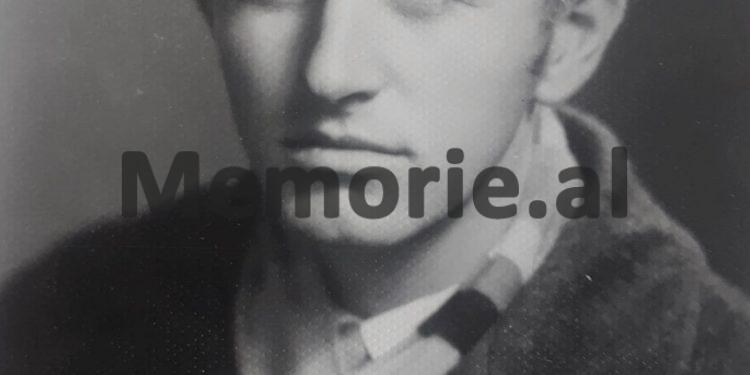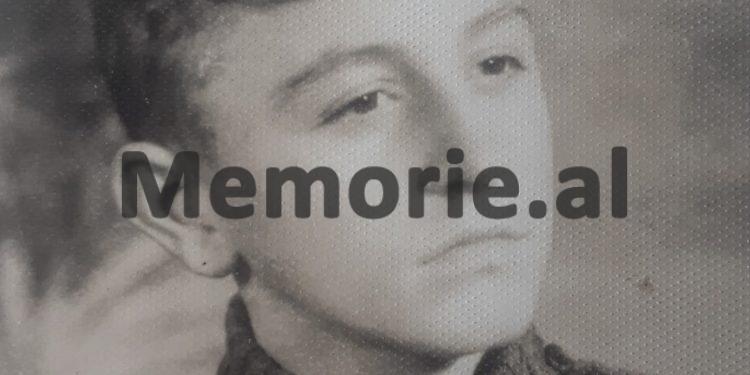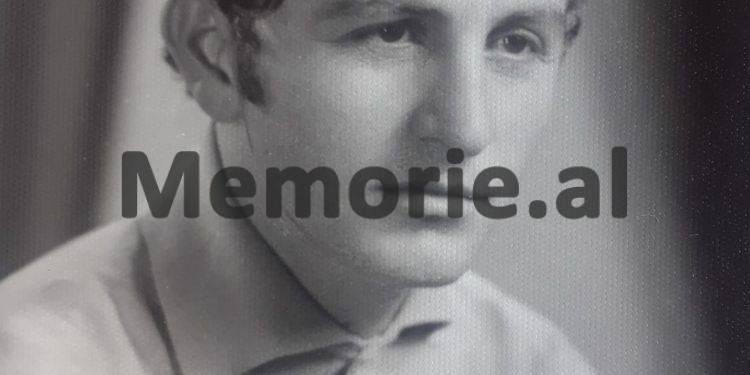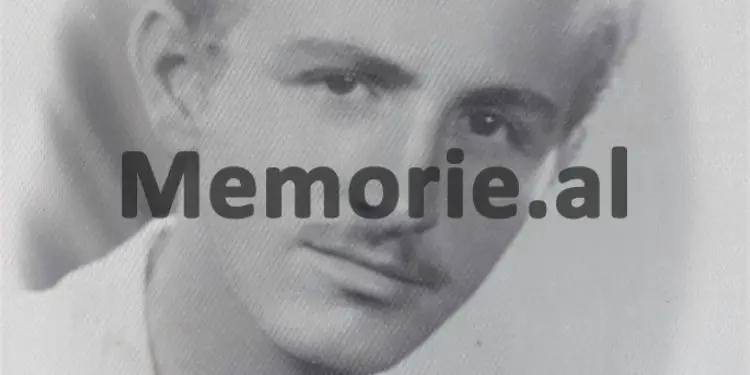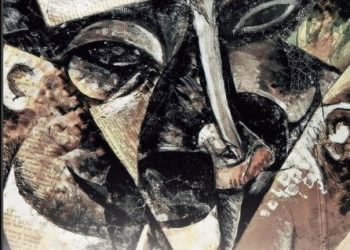By Bashkim Trenova
Part thirty-three
Memorie.al publishes the memoirs of the well-known journalist, publicist, translator, researcher, writer, playwright and diplomat, Bashkim Trenova, who after graduating from the Faculty of History and Philology of the State University of Tirana, in 1966 was appointed a journalist at Radio- Tirana in its Foreign Directorate, where he worked until 1975, when he was appointed journalist and head of the foreign editorial office of the newspaper ‘Zeri i Popullit’, a body of the Central Committee of the ALP. In the years 1984-1990, he served as chairman of the Publishing Branch in the General Directorate of State Archives and after the first free elections in Albania, in March 1991, he was appointed to the newspaper ‘Rilindja Demokratike’, initially as deputy / editor-in-chief and then its editor-in-chief, until 1994, when he was appointed to the Ministry of Foreign Affairs with the position of Press Director and spokesperson of that ministry. In 1997, Trenova was appointed Ambassador of Albania to the Kingdom of Belgium and to the Grand Duchy of Luxembourg. Unknown memories of Mr. Trenova, starting from the war period, his childhood, college years, professional career as a journalist and researcher at Radio Tirana, the newspaper ‘People’s Voice’ and the Central State Archive, where he served until the fall of the communist regime of Enver Hoxha, a period of time when he in different circumstances met many of his colleagues, suckers of some of the ‘reactionary families’, etc., whom he described with a rare skill in a book of memoirs published in 2012, entitled ‘Enemies of the people’ and now brings them to the readers of Memorie.al
Continued from the previous issue
“Enemies of the people”
The letter I wrote to Ramiz Alia to work for the newspaper “Bashkimi”!
I did not want to come out as a “savior.” Of course, I did not even want to enter the State Archives here on the path of endless quarrels and conflicts. To avoid this, I left the “Voice of the People”. To avoid this I wanted to leave the State Archive as well. With this thought in my head, on March 8, 1988, I wrote a letter to Ramiz Alia who, after the death of Enver Hoxha, had succeeded him to power. In this letter, among other things, I said: “Now, after four years of work, relatively quieter than in the press, I feel the need to return to an editorial office where I think that, with the experience I have, I can give more. Please help me to realize this wish, if possible…. I take this opportunity to write you this letter knowing that in the Foreign Sector of the newspaper “Bashkimi”, with the departure of its editor, Comrade Napolon Roshi, there is a vacancy “.
It was not long before I was called to the Central Committee of the Party. They put me in an office. There I had to wait a few moments for someone to come and answer me officially for the letter I had sent to Ramiz Alia. The person I was waiting for was not late. I do not remember his name, maybe Petrit. The surname was Shijaku. I had heard that he was once part of the group close to Enver Hoxha that dealt with letters from the people.
Shijak shook my hand and smiled coldly at me. He did not prolong the conversation, he said to me: “It seems reasonable to continue working in the Archive with publications”. Then he asked me a question that seemed to me somewhat strange, meaningless. “Don’t you think,” He asked me, “that Comrade Ramiz does not know that you have worked in the press for 18 years”?! In my letter I had written that before moving to the State Archives, I had worked in the press for 18 years. His answer and question in a clear translation should have been understood by me as follows: “There is no need to send letters to Comrade Ramiz. The party knows everything; I also know how long you have worked in the press, so keep working where you are, because that is where you have a place forever “. The party had paid off the “debts” with me, it had archived me. In fact I should have realized this truth myself in time.
The refusal of Hamit Boric’s request for me to become a lecturer in the Department of Journalism!
During all the years I had worked in the State Archive, I had published in some press organs only an article or note that was directly related to the work and archival documents. I had never been approached by an editor to ask me to write something from foreign policy as a specialist that I had been in this field, but also in other fields as had happened before by collaborating, for example, with the newspaper “Drita” , a body of the League of Writers and Artists of Albania, but also with other press bodies. Even any attempt I had made “to break the siege” was extinguished without any explanation. Hamit Boriçi, editor-in-chief of the newspaper “Bashkimi” and head of the Department of Journalism, had asked me to pass as a lecturer at this Department, but as in previous cases that were presented to me, his request would be rejected. The same thing would happen later when Paskal Milo, head of the Department of World History at the State University of Tirana, would ask me to start working as a lecturer at this Department.
I had nothing to do. I stayed at the State Archives. Thoma Murzaku continued to lead in the same style. Concerns in the institution over time were becoming even greater. At the meetings of the collective, the employees did not spare criticism for Thoma Murzaku. His reaction was always arrogant. “Some special employees have gone too far and crossed every border,” said Thoma Murzaku at such a meeting. “These things, as they arose,” he said, “have nothing to do with me, measure the words.”
Conclusions of the team of the Tirana Party Committee, towards the director, Thoma Murzaku!
Under these conditions, the Tirana District Party Committee sent a control team to the General Directorate of State Archives. On March 28, 1988, the secretary of the Party of this Committee, Bardhyl Paruca, presented to the communists of the State Archive the conclusions of this control. In them, among other things, he emphasized: “To call in the report directors, etc., leaders to be accountable to the organization …. There can be no organization and collective with trouble and good leaders. The director has signs of arrogance, differentiates employees, and does not communicate with people. He must take the opinion of others and not fetishize his own opinion…. Comrade Thoma to reflect. He is mature. This is not the case anymore…. Comrade Bashkim, let him play his role better if there is revenge”, etc.
These findings were completely in line with the collective and my criticism of Thoma Murzak. I also considered them as a help and warning to Thoma Murzaku. I, as the secretary of the Party organization, was required to be more active. This is how I at least understood the conclusions of the control team. Thomas, as always, did not want to know. Neither Bardhyl Parruca nor Naunka Bozo, another secretary of the Tirana District Party Committee, who later repeated the criticism of Thoma Murzak in the Central State Archive, caught his eye. “You continue on the same path,” Nevila Nika, an employee of the institution, told him at a meeting of the collective. Indeed, he continued on the same path. Even if Labor Party leaders, members of the Politburo or the Central Committee of the Party had realized that in the face of growing popular discontent the dose of demagoguery had to be increased and the “democratic” positions multiplied, Thomai continued as he was. Maybe he thought that this was a manifestation of confidence and this would discourage his critics in the collective!
My proposal at the meeting of the Party organization, to circulate the director Thoma Murzaku!
At this time Ramiz Alia had given a speech on the cadre in the plenum of the Party Committee of the city of Vlora. In his speech, among other things, he had said that in the direction should be chosen people who have the ability to communicate with people, to the extent that to solve people fairly the problems they have. Another problem that Ramiz Alia raised in this plenum was that of staff turnover, which mainly meant the movement from leading positions of staff who were in office for eight to ten years. I expressed my readiness, without any reservation, to circulate whether in the press, in publishing houses, in education or anywhere else that was necessary and deemed reasonable. None of the members of the organization was willing to circulate as requested by the Party. They all ignored her request. In these conditions, I openly expressed the opinion that, for all those motives mentioned by Ramiz Alia, Thoma Murzaku should circulate. “I think,” I said, “that Comrade Thoma should also express this readiness as a communist and head of the institution. My opinion is that he should circulate.” Rrebeshi in my address did not delay.
In his speech, Thoma Murzaku said: “I have circulated in the district of Mat and I am not afraid of the circulation, but maybe it is the Union that is afraid of it. He should give evidence like mine; he needs to circulate because he came to a central institution from another central institution “. Then he addressed me, saying: “You have started a wrong path, you are an opportunist, you will give explanations to the organization, you will answer, and you will make self-criticism”.
Archive employees who came to the defense of Director Murzaku and were rewarded by him!
After Thomas, Adrian Banushi took the floor. He seemed to be prepared for his discussion in Thomas’s office. He reminded me of the problem of Greek books about Trotsky. He did not know this because the problem was closed without being discussed in the organization. Thomai knew this, that he had told him, and that after a few years he would use it himself as a proof against me. Aad said neither less nor more than: “Why do you talk about the activity of Comrade Thoma? I have a lot of vague things here…! We should also talk about Trotsky. I do not know how this problem ended. You should not have been the leader of the organization…! It seems to me that this parade is not fair, not dignified and that Comrade Thoma is criticized… ”! I remember how Adrian Banushi was given a tricycle and a ‘FIAT’ type truck by Thoma Murzaku and he used them not only for work needs, but also for personal ones. He also did “circus numbers” on the tricycle, in the front yard of the institution. Adrian was an engineer for the maintenance of the equipment of the Central State Archive, but he showed almost no care for them, justifying himself in the absence of spare parts, which had to be brought from abroad. That was enough for Adrian to echo Thoma Murzak. Otherwise he risked losing a lot. Not far away, Thomas had mentioned all this to him.
After Adit General Minella discussed. He did not last long either. “I do not agree with your discussions,” he told me. You made the discussion in a journalistic style…! It does not seem right to me to get caught behind a nail”! I would later learn that Thomai had promised Minella, a promotion, would make her in charge of the General Sector, hence a better salary. What would Minella do? In another case, he would say, “Here the Union criticized Thomas, and what did he gain?” I understand Minella, to some extent the others too. He had indeed once made some light criticism of Thomas, just enough to be right with his conscience. What did he gain? Nothing “Saint” Thomas always “sent lightning from the heavens”!
Ruhi Sinani then spoke. He was military. Dealing with the secret in the State Archives. In fact he was not dealing with anything. He locked himself in his office ostensibly to keep it a secret and slept on his desk for seven couples. His only preoccupation was raising wages. Only Thoma Murzaku had this in hand. After arguing with him several times about this and to no avail, he would try the opposite, take him into defense. “I do not agree with the discussion of Comrade Bashkim, neither in form nor in content”, said Ruhiu…! “It does not mean that you discussed the line,” he told me. Thoma Murzaku, as I mentioned, had once warned me by telling me not to think that I was the organization and that it, that is, the organization, would not allow me to do as I wished.
Bato Bega also came out in defense of Thomas. I also understand Baton quite well. He once quarreled with Thoma Murzaku. For weakness of discipline at work he was dismissed from office as head of office and had received reprimands in the Party. Still without repaying him, Thomai rushes and holds him accountable. It was not normal for a reprimanded communist to be held accountable. It seemed as if the Party organization was being challenged by the Directorate. To Thomain these were insignificant nuances. Bato had no reason to be insensitive to the nuances, which obscured his perspective at work, or paved the way for her.
Even Ariana Nikolla, whose voice I had never heard either in the meetings of the organization or in the collective, suddenly woke up from deep hibernation. “I do not agree with the discussion of Comrade Bashkim…!”I do not think it is right for those who stand up for Comrade Thoma”, she said. She a few months ago had refused to work as a photocopier in the K.Q. of the Party. Employment in this country was then valued as an honor that the Party does to one of its members, but also as a special appreciation. Ariana had said that “she had a headache”, so she could not work as a photocopier in the Central Committee of the Party. For this she was also punished in the organization with reprimands. After that, she knew very well that she could lose her job in the State Archive, that the measure in the Party could be deepened if the director of the institution demanded it. The director would “forget” everything, but for that she also had to serve him in difficult days.
The most decisive and strict was Kristaq Teneqexhiu. “I,” he said, “do not agree for the Union to be, not for the bureau to be, but to look at its position.” He, after Ariana Nikolla and Natasha Koja, secretary of Thoma Murzaku, proposed that Thomai be elected as a member of the bureau of the Party organization. Immediately after him, Thoma Murzaku spoke again. “I have the same opinion about the Union,” he said. ‘He is sluggish, he is not energetic, he is passive, he does what comes to him. “He has even more energetic friends.” In short, Kristaqi, commissioned by Thomai, proposed that I no longer be the secretary of the institution’s basic Party organization. He was right! That way he would get rid of me, it would be easier for him to settle accounts with me. On the other hand, for this service, Kristaqi would be rewarded. He was elected secretary of the organization, was awarded two years in a row financially by the Directorate, and was offered a specialization course in France and then a trip to Bulgaria.
We Kristaq colleagues in the State Archive called him not by name or by an abbreviation of it. He was known by the nickname “Chinese” or Kristaq Chinese. This is because his behaviors and attitudes were completely foreign and inexplicable to our psychology, phlegmatic and completely pragmatic. He had once been a student in China. After the overthrow of communism he will go to China again. It seems to me that it took place in the broadcasts of Radio Beijing in the Albanian language. This is what the friends of the Archive told me.
Thomai and those who followed him knew that his “guardian angel” was far above the Party Party of the Region or even the Committee of the Party of Tirana. The employees of the State Archive knew this, I knew that too. She was the widow of the dictator, Nexhmije Hoxha and her cousin, at the same time the dictator’s descendant, Ramiz Alia, where she found safe haven of arrogance, irresponsibility, all his scandalous, vengeful behaviors and attitudes. It was Teuta Hoxha, the daughter of Reshat Alia and the granddaughter of Ramiz Alia, the wife of Ilir Hoxha, the son of the former dictator, it was Reshat Alia himself, the brother of Ramiz Alia and the cousin of the dictatorial couple Hoxha, those who served as messengers and advocates of Thoma Murzak, on the highest peak of the communist dome.
Reshat Alia was years past retirement age. In communist Albania, in recent years, those who had reached retirement age, willingly or unwillingly, retired. Neither some of the members of the Politburo or the Central Committee of the Party, nor academics and professors, generals and philosophers were excluded from this new “rule”. The party wanted to show that it was bringing new people at the head of it and state institutions, that is, as if it was gradually breaking away from the old, as if it was reforming itself. In fact, this was nothing more than a realignment of the ruling clans. In all this parade of leaving the old, Reshat Alia was an exception. He did not hold any leadership position, he was neither a philosopher nor a general, but the power of his speech was unquestionable. I had asked Thoma Murzaku at a meeting of the organization why he did not retire Reshat Alia and I had asked him to do so. Thomai knew that whatever he said about him, how much he would lose if he fired Reshat Alia. He lost everything. Reshati, for his part, was interested in continuing to work at the State Archives, where he did virtually no work. The State Archive was for him the environment where he could spend several hours of entertainment. Of course, seeking Reshat Alia’s retirement, I had gone far enough.
Indeed, by the end of December 1988, or the beginning of January 1989, the Party had decided to have its say, make the relevant decisions, and establish “peace” in the General Directorate of State Archives. A team of the Central Committee of the Party, consisting of Haxhire Xhani and Gëzim Dobrovoda, arrived at the General Directorate of State Archives.
I had never met or met any of the delegates of the Central Committee of the Party. I had heard about Haxhire Xhani that he was a jerk, with a mouth like a broom to clean the toilets. I had heard that the Central Committee of the Party sent him to control teams whenever he had to use the broom, to clean the “polluted environment”! I had never heard of Gëzim Dobrovoda before.
The delegates of the Central Committee of the Party convened a meeting of the basic organization of the Party. Usually the organization held its meetings in the great hall of the State Archives, where the meetings of the collective were held. This time the meeting took place in the office of the director of the State Archive, Thoma Murzaku. If we had previously avoided the comfortable office of the director, we had done so deliberately to prevent the creation of the opinion in the collective, that the Party organization took decisions in this office, according to the wishes of its patron. The delegates of the Central Committee of the Party acted differently from the practice of the organization. They decided that the communists should be summoned to the office of Thoma Murzak. Thus they sent the signal that they would not allow Thoma Murzaku to be touched, that those who dared to criticize him would be punished immediately without leaving that office. Under communism, everything had its own symbolism, which you had to know, understand and decipher, just like Chinese symbols. In the cult of communism, symbolism occupied an important and special place. So it was, in this case, with the office that was elected to hold the meeting of the basic organization of the Party.
The meeting of the basic organization in the office of Thoma Murzaku, which lasted 12 hours!
The meeting began at four o’clock in the afternoon, after the end of the official working hours, and ended at four o’clock in the morning of the next day. This is the longest gathering in my whole life. Full 12 hours of absurdities, accusations, slander, immorality, denigration, slander, lack of human dignity, fear and servility, dictates, authoritarianism. It was Haxhire Xhani who would speak first. As she said, several letters had arrived in the Central Committee in a row. The writers criticized director Thoma Murzaku. She did not say whether the letters were authored or anonymous, whether it was the same person who wrote them or whether they were written by several different people. Haxhire Xhani also cited some of the problems, which according to her, worried the authors or the author of the letters sent to the Central Committee. She concluded: “If these problems exist, they hinder work. If not, then there are some troublemakers who are hindering the work. ” In fact, the Central Committee was not bothered by the problems that had accumulated and remained unresolved for many years in the State Archives, nor by the truth about them.
The “troublemakers” in the Party organization were Bujar Hoxha, Aleks Kume, Hafsa Krutani and me. So there were four of us, and among us, a friend, Hafsa. Thoma Murzaku had accused us of being an “organized group” even though nothing was true in his words and he knew this very well. We would later laugh at this fact by comparing ourselves to the “gang of four” in China. The history of China after Mao Zedong was well known in Albania in those years. It was known, for example, that his widow, Qian Qin, had conspired together with three senior leaders of the Chinese Communist Party to seize power. This was the official Chinese version. Officially, the conspirators were described in China at the time as a “gang of four.”
The four of us, after Haxhireja finished her exposition, stood up one after the other and supported, in essence, the criticism that had been made to Thoma Murzaku in the letters, which, as it was said, had gone to the Central Committee of the Party! I emphasize, “as it was said”, because the history of letters can even be completely fabricated. In fact, we repeated the same criticisms that had been made of Thoma Murzaku before in the organization and in the collective. There could have been some new facts, but that, anyway, went in the same direction.
Immediately after us, Thoma Murzaku spoke. “They are legends,” he said. It’s our duty to stop the momentum of these people. I call myself one of the hardest working people, the most persistent and the most disciplined. ” Addressing us, he added: “To give up this bad path and make self-criticism, otherwise we will take a stand.” It is interesting to note that he does not propose to take a stand, but speaks in the plural, on behalf of all, saying: “We will take a stand.” The last phrase of his discussion is also significant: “I trust the organization and not to allude to who is protecting me …..”! We do not have any slips on the part of Thomas here. He knew what he was talking about, he had taken precautions. Everything was best plotted behind the scenes, the roles were divided, the decision was made, and the “guardian angels” conveyed the news. Memorie.al
The next issue follows




